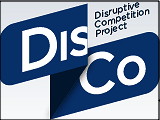With the controversy surrounding the International Telecommunications Union (a UN treaty organization) just recently subsiding, it is time to take a look at Internet governance from a different perspective. We all know that laws and legal principles differ among countries. What many do not realize is that these laws — most completely non-tech oriented — are having a massive and negative impact on Internet innovation.
In America we proudly have the First Amendment, the fair use doctrine and the DMCA. The first limits the reach of liability for libel (defamation) at least to cases, for non-celebrities, where a publisher is at fault (i.e., negligent). Section 230 of the last allows ISPs, websites and Internet hosts a legal safe harbor from copyright and other legal offenses resulting from user-generated content or any other content that a customer, client or some third-party has published. These landmark legal regimes are hallowed in the U.S., for instance used to strike down overreaching Web censorship efforts by federal government. Fair use, in turn, permits non-commercial or transformative use of a portion of copyrighted content. Think Google image search thumbnails or blockquotes from a news source in someone’s blog or a movie clip in a televised review.
Things are very different elsewhere. Three cases in point.
- In Germany and perhaps soon other EU nations, search engines that display snippets of indexed Web pages in response to user queries are now by statute responsible for paying copyright royalties to the original publisher, regardless of whether the content owner charges for its stories with a paywall.
- In France, Italy, Ireland, Australia and now Japan, courts permit individuals to recover for libel based on autocomplete and search results that return incorrect or harmful personal information, but against the search provider, not the writer or content publisher.
- A Denmark court ruled deep linking illegal, as did Germany, leading some to believe that linking to a website other than the front page was illegal throughout Europe. While the German courts overturned that decision, it was Agence France Presse (AFP) which eventually sued Google News for brazenly daring to send search traffic to the organization’s news articles.
 These results are foreign, literally, to U.S. jurisprudence. But they also illustrate a vitally important point. Legal regimes that have nothing to do with the Web are being applied in ways which upset existing services users take for granted and that threaten to impede future innovation. Linking is inherent in HTML and represents the essence of the Web. No one in America would argue seriously today that a hypertext URL link represents copyright violation. Search “autocomplete,” in turn, is not a creative activity, but a very useful technical advancement; it applies computer algorithms based on past searches to predict what the current user wants to see, speeding the retrieval of information from the Web.
These results are foreign, literally, to U.S. jurisprudence. But they also illustrate a vitally important point. Legal regimes that have nothing to do with the Web are being applied in ways which upset existing services users take for granted and that threaten to impede future innovation. Linking is inherent in HTML and represents the essence of the Web. No one in America would argue seriously today that a hypertext URL link represents copyright violation. Search “autocomplete,” in turn, is not a creative activity, but a very useful technical advancement; it applies computer algorithms based on past searches to predict what the current user wants to see, speeding the retrieval of information from the Web.
Permitting autocomplete defamation suits against Google or Bing because other Web users have searched for information that damages an individual’s reputation is alien to our American way of thinking. It’s censoring completely accurate factual information about stuff on the Web, although that stuff may itself be factually wrong. The augmentation of liability is also just plain silly, because both autocomplete queries and search results themselves merely return an indexed link to something someone else has posted on the Web.
By moving liability beyond the content publisher to search intermediaries like Google and Microsoft, these countries are playing with fire. It is one thing for U.S. tech companies to tailor their offerings a bit in order to comply with repressive foreign regimes; at least some information gets through to the citizens. It is quite another for these and other tech firms to change their business models or service offerings merely to avoid unjustified efforts to delve into their deep financial pockets as an easy remedy for folks pissed about some bad remarks about them appearing on the Web. And the copyright royalty movement for publishers is even more absurd. As EFF commented:
Newspapers across Europe in particular have sought to prevent third parties from linking to or displaying excerpts of their news content unless those sites provide proper notice to the news publisher and pay royalty fees for what the papers determine to be “commercial use.” Rather than revel in the benefits of more traffic, these newspapers demand that search engines and third-party sites give them a cut of profits that come associated with the sale of advertisements.
By using copyright royalties as an unvarnished mechanism to protect brick-and-mortar newspaper publisher revenues, these European countries are unabashedly applying their non-tech laws to punish disruptive technologies, in a way that harms the openness of the Web, deprives their citizens of the full benefits of Internet content and represents blatant economic protectionism. In February, Google defused French President François Hollande’s threat to pass a compensation law by agreeing to spend €60 million to support French publishers developing their online businesses, but France is now reconsidering such a law, in Germany’s wake. Earlier, and remarkably, France fined Google some $660,000, this time on competition grounds, for providing Google Maps free of charge, thus challenging traditional atlas and gazette publishers. And in Belgium, the courts have ordered Google to remove its cache of all indexed content for Belgian publishers.
One Japanese court justified imposing defamation liability on search providers on the ground that “A situation has been created by which illegally submitted documents can be easily viewed,” according to chief judge Hisaki Kobayashi as quoted in the Mainichi Shimbun newspaper. That’s precisely the problem. The whole utility of the Internet lies in making information more easily available. If that content is wrong or damaging, the answer lies in going after those responsible for it, not search engines, ISPs or web hosting providers.
In the U.S., this is why Congress early on (1998) created a “notice-and-takedown” paradigm. (Attempts to evade the legal protections available in the U.S. by relying on older common law rationales like “false light” invasion of privacy have, to date, all been unsuccessful.) If YouTube gets a copyright notice and removes the offending content, it is immune from monetary liability. That’s great for the Internet and innovation, but bad for Viacom — which has to police for infringing Cartoon Network clips — and for traditional newspapers, which must go after small bloggers and others who pirate their content. Our system does not allow the costs of content protection and compliance to be shifted from content publishers to Web hosts and search providers. Yet that’s not the case in Europe at all. YouTube users in Germany regularly encounter a notice that the streaming service cannot show a requested music clip because of a continuing dispute with Gema, the German songwriters’ rights society, over music royalties, and Google rightfully says the same thing will happen to German Google News users because it would be forced on cost grounds to stop posting news links and article snippets.
Kashmir Hill put it quite nicely in Forbes about the potential for disastrous consequences:
An American court would likely never come to the same conclusion, but the [French autocomplete defamation case] sets a bad precedent for Google in Europe. There are quite a few people and companies out there who may have suggestions for their names that could be considered defamatory. (Ahem. Max Mosley.) Who else is going to line up to sue Google over the crowd-sourced caprices of autocomplete? If the lawsuits pile up, will Google have to bid the feature au revoir?
If the rest of the world really wants to have a global system for Internet governance, as many urged before the ITU over the Obama Administration’s objections, they had first better get on board by updating their legal systems to remove archaic rules like these that serve only to retard technological progress and Balkanize the World Wide Web. And just as Yahoo! opposed (and finally defeated) French efforts more than a decade ago to impose liability on it for hosting an auction site on which users posted ads for Nazi memorabilia — the sale of which is illegal in France — Google should be commended for leading the opposition to the latest use of copyright and damages liability as a means of censorship of the Web. The German society of start-up entrepreneurs, to its credit, thinks so as well.
Note: Originally prepared for and reposted with permission of the Disruptive Competition Project.


Leave a Reply